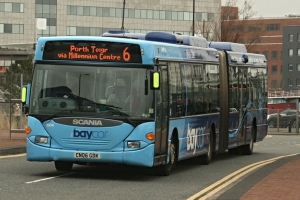Support migrant centric journalism today and donate

UK immigration will be sharing more data and intelligence with overseas Governments in source immigration Countries to prevent illegal immigration. "The international action plan" by the Home Office and the Foreign & Commonwealth Office will according to the government lead to more effective action abroad against human traffickers, forgers and foreign criminals.

The UK Border Agency's says that so far international action plan successes include the following:
- 67,000 passengers who were considered to be inadequately documented were stopped from boarding planes to the UK in 2008-09.
- Suspected fraudulent visa applications were referred to police abroad; This lead to more than 1,280 arrests as of September 2009.
- A British Embassy team in China working with local authorities to speed up re-documentation ; This lead to 3,280 Chinese nationals being removed from the UK in 2009.
UK Government ministers also said that they are committed to 'circular migration' which they say will reduce the problems caused by skills loss in the immigration source Countries. Migrants should be able to send money back home and, asylum seekers should be able to claim asylum closer to home. It remains to be seen how this will work in practice. Presumably Migrants can already "send money back home". It may not be feasible for asylum seekers to claim asylum in another Country.
Immigration Minister Phil Woolas said:
'The message today is clear, we want the smugglers, traffickers and forgers out there to know, wherever they are in the world, we are watching them. Paying people traffickers is a rip-off.
'Three-quarters of the world's population now need a visa to come to Britain, and UK Border Agency officers are working in 135 different countries to stop organised criminals in their tracks.
'Our enforcement work must go hand in hand with circular migration, and sharing our skills and training with developing nations.'
The action plan is entitled 'International challenges, international solutions: managing the movement of people and goods'. UK immigration is looking at proposals to "pause the journey to citizenship" for skilled immigrants so that they can return home and help their home Country. It is hoped that this will help developing Countries benefit from skills gained by skilled workers while working abroad. The intention is that this would not affect the skilled workers' "path to citizenship in the UK".
Immigration Minister Mr Woolas also had the following to say:
'There is no question that migration has brought benefits to the UK economy. Many of those who come here plug hard-to-fill jobs gaps, playing a key role in running public services especially in health and education.
'But while Britain is benefiting, it is important that we do not deprive other countries of the skilled people they need most. It's in our long-term interest that they have the doctors, nurses and teachers who are so crucial to their development.
'That's why, particularly in these difficult times, we must ensure those that do come here are given the opportunity to help back home and invest their new-found skills.'





















